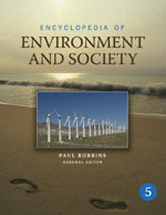

CC BY 2.0. Grand Canyon National Park: North Rim: National Park Service photo by Michael Quinn.

Tools you should use when working on a research project involving library resources...
MacLinks connects you to our collections (and available fulltext)
A service that helps you find out whether an article, book, or other item is available here at Macalester. If it's not, it enables you to easily request it through interlibrary loan. Just look for the  icon!
icon!
Interlibrary Loan gets you access to resources not available in our library.
When doing research, don't limit yourself to the resources found at our library. Our interlibrary loan program allows you to borrow materials at no cost from other libraries when they are not available here.
Librarians are here to help you!
Need help getting started on a research project? Want assistance getting your hands on a hard-to-find resource? Have a citation question? Librarians are available to assist you. Stop by the Service Desk (librarians are available until 9pm most nights), schedule a one-on-one consultation, or contact us via email or chat.


These are the best article databases to use when doing geology related literature searching.
GeoRef is the most comprehensive database in the geosciences. It contains over 3.7 million references to journal articles, books, maps, conference papers, reports and theses.
Web of Science is the world's leading citation database. It contains records of articles from more than 12,000 of the highest impact journals and more than 160,000 conference proceedings including many in the field of geology.
Google Scholar searches for scholarly literature on the web. It's a good starting place, but not comprehensive enough to be the only place to do in-depth research. For more precise searching and more content, you should also use library-subscribed databases such as GeoRef and Web of Science.
In addition to the Geology 'best bets', these article databases (including related discipline databases and multidisciplinary databases) might also be helpful when doing geology related literature searching.
Subject encyclopedias can be a good starting point for your research. They provide articles written by experts in their field and can provide a good overview of a topic. Articles in subject encyclopedias can also help to identify search terms to use in database searching and often include useful resources in the brief bibliography often included at the end of the article.
Geology-related Encyclopedias:
 Encyclopedia of Environment and Society
Encyclopedia of Environment and Society
This encyclopedia brings together issues, concepts, theories, examples, problems, and policies, with the goal of clearly explicating an emerging way of thinking about people and nature. With more than 1,200 entries written by experts from incredibly diverse fields, this innovative resource is a first step toward diving into the deep pool of emerging knowledge related to socio-environmental issues. Sage Publications, 2007.
The majority of the entries are devoted to explanations of paleontological concepts and techniques, examinations of the evolutionary development of particular organisms and biological features, profiles of major discoveries, and biographies of leading scientists. Each entry includes an essay and a further reading list.
Subject encyclopedias can be a good starting point for your research. They provide articles written by experts in their field and can provide a good overview of a topic. Articles in subject encyclopedias can also help to identify search terms to use in database searching and often include useful resources in the brief bibliography often included at the end of the article.
![]() A handful of links to local resources and organizations here in the Twin Cities to help kick-start your research process.
A handful of links to local resources and organizations here in the Twin Cities to help kick-start your research process.